TMS therapy services in atlanta georgia
TMS Therapy
- Resilience Behavioral Health of Georgia
- How We Help
- TMS Therapy
Learn more about what TMS therapy is and how it can help treat a variety of mental health issues. At our TMS therapy program in Atlanta, we can help you rediscover a path to balance & restoration in recovery.

How Can TMS Therapy Help
Understanding TMS Therapy
Transcranial Magnetic Stimulation (TMS) therapy is an innovative, non-invasive treatment option for individuals struggling with depression and other mental health conditions. This advanced therapy uses magnetic fields to stimulate nerve cells in the brain, aiming to relieve symptoms of depression, particularly for those who haven’t found relief with traditional treatments. As mental health awareness increases and treatment methods evolve, TMS therapy has gained significant recognition for its effectiveness. Here at Resilience Behavioral Health, we are committed to providing this cutting-edge therapy to our community through our specialized TMS therapy program in Atlanta.










Most Insurance Can Pay for up to 100% of the cost of treatment
We Work With Most MajorInsurance Companies
We understand the financial challenges of seeking treatment for mental health & substance abuse issues. Our team is committed to working with your insurance provider to assess your needs and benefits, ensuring you get the best possible care without added financial stress. Contact us today to find the right treatment plan for you.
How does it work?
How Does TMS Therapy in Atlanta Work?
TMS therapy involves the use of magnetic pulses to stimulate areas of the brain that are underactive in individuals suffering from depression. This stimulation can help increase brain activity and improve mood regulation.
The procedure involves placing an electromagnetic coil against the patient’s scalp near the forehead. The coil sends magnetic pulses to stimulate nerve cells in the region of the brain involved in mood control and depression. These pulses are repetitive and targeted, which is why the treatment is often referred to as repetitive TMS or rTMS.
The U.S. Food and Drug Administration (FDA) approved TMS Therapy in 2008 for patients with treatment-resistant depression. Numerous studies have shown its success in reducing symptoms in individuals who haven’t responded to antidepressants and other conventional therapies. According to research, approximately 50 to 60% of people with depression who have not benefited from medications experience significant improvement with TMS. One-third of these individuals achieve complete remission from their depression symptoms.

get immediate help right now - let us give you a call
Request a 100% Confidential Callback
Will TMS Therapy Help Me?
How to Know If TMS Therapy in Atlanta Is Right for You?
Determining if TMS therapy is the right fit for you involves a thorough evaluation by a qualified mental health professional. At Resilience Behavioral Health, our experienced team conducts comprehensive assessments to ensure that our TMS therapy in Georgia is appropriate for each patient’s unique needs and circumstances.
Beyond major depressive disorder, TMS therapy is being explored and used for a variety of other conditions, including:
- Anxiety Disorders
- Obsessive-Compulsive Disorder (OCD)
- Post-Traumatic Stress Disorder (PTSD)
- Bipolar Disorder
- Chronic Pain
- Migraines
While TMS offers hope for many, not every patient is a suitable candidate. Ideal candidates typically include individuals who:
- Have not seen satisfactory results from antidepressants or other forms of therapy.
- Experience negative side effects from antidepressant medications.
- Prefer a non-invasive treatment option.
- Are not pregnant or have no history of seizures or epilepsy.
If you’re considering TMS therapy, the first step is undergoing an initial consultation. During this meeting, our specialists at Resilience Behavioral Health will discuss your medical history, current mental health status, and previous treatment experiences. This thorough assessment helps us create a personalized treatment plan that aligns with your specific needs.
How can TMS treatment & therapy help me
What to Expect During a TMS Therapy Session in Atlanta, GA?
Transcranial Magnetic Stimulation (TMS) therapy is a non-invasive treatment used for depression and other mental health conditions, especially when traditional treatments like medication or talk therapy have proven ineffective. It offers a new avenue for relief by targeting specific areas of the brain linked to mood regulation.
Before beginning treatment, you’ll undergo an initial consultation with a doctor to determine whether TMS is appropriate for your condition. This involves a thorough review of your medical history and mental health background. Once approved, the first session will include a brain mapping process. During this step, the doctor or TMS technician will apply short magnetic pulses to different areas of your head, aiming to identify the exact part of your brain that requires stimulation. This is typically done by observing motor responses, such as hand or finger movements.
The TMS procedure itself lasts about 20-40 minutes, depending on your treatment plan. You’ll sit comfortably in a chair while a magnetic coil is placed against your scalp, targeting the brain area identified during the mapping. During the session, you may feel a tapping or knocking sensation on your head, and some patients report mild scalp discomfort or headaches, particularly during the first few treatments. However, you remain fully awake and alert throughout the procedure and can resume your regular activities immediately afterward.
TMS therapy is typically administered five days a week for four to six weeks. Consistency is essential for optimal results, and your doctor will monitor your progress, adjusting the treatment as needed. While TMS is generally well-tolerated, some patients may experience mild side effects such as scalp discomfort, lightheadedness, or temporary facial twitching during stimulation.
Throughout the course of treatment, your doctor will track your progress, noting any changes in mood, sleep, or energy. Many patients begin to see improvements after a few weeks of therapy. After completing the full course, some individuals may require maintenance sessions or complementary therapies, but many experience long-lasting relief from their symptoms. Since TMS is an outpatient procedure, there is no recovery time, anesthesia, or sedation involved, making it a convenient and effective option for those seeking an alternative to traditional mental health treatments.
How TMS Therapy Can Benefit You
The Benefits of TMS Therapy
TMS therapy offers a range of unique benefits that contribute to its rising popularity among both patients and mental health professionals. One of the primary advantages is that it is a non-invasive, drug-free treatment. Unlike many pharmaceutical options used to treat depression, TMS requires no surgical procedures, anesthesia, or systemic side effects, making it a gentler option for those seeking relief.
Another key benefit is its high success rate, particularly for individuals with treatment-resistant depression. Many patients experience significant improvement in their symptoms, with some even achieving full remission, offering hope for those who have struggled to find effective treatment.
TMS therapy is also convenient due to its minimal downtime. Sessions are relatively short, allowing individuals to return to their daily routines immediately after treatment, making it an ideal choice for those with busy lifestyles.
Finally, the improvements in mood and reduction in depressive symptoms often lead to an enhanced quality of life. Patients frequently report better sleep, increased energy, and improved relationships, all contributing to a more fulfilling and balanced life.
At Resilience Behavioral Health’s TMS therapy program in Atlanta,, we are dedicated to providing the highest quality of care to our patients. Our TMS process is designed with your well-being in mind, combining state-of-the-art technology with compassionate, personalized treatment.
Beyond major depressive disorder, TMS therapy is being explored and used for a variety of other conditions, including:
- Anxiety Disorders
- Obsessive-Compulsive Disorder (OCD)
- Post-Traumatic Stress Disorder (PTSD)
- Bipolar Disorder
- Chronic Pain
- Migraines
While TMS offers hope for many, not every patient is a suitable candidate. Ideal candidates typically include individuals who:
- Have not seen satisfactory results from antidepressants or other forms of therapy.
- Experience negative side effects from antidepressant medications.
- Prefer a non-invasive treatment option.
- Are not pregnant or have no history of seizures or epilepsy.
If you’re considering TMS therapy, the first step is undergoing an initial consultation. During this meeting, our specialists at Resilience Behavioral Health will discuss your medical history, current mental health status, and previous treatment experiences. This thorough assessment helps us create a personalized treatment plan that aligns with your specific needs.
let's start with a simple conversation.
The Healing You Need isJust a Phone Call Away...
Contact us today to speak to someone who understands what you or your loved one is going through. Get a free assessment and experience the difference of expert and compassionate behavioral healthcare in Atlanta, Georgia.
Paying for TMS Therapy in Atlanta
Is TMS Therapy Covered by Insurance?
Yes, Transcranial Magnetic Stimulation (TMS) therapy is often covered by insurance, but it depends on several factors, including your insurance provider, policy, and the medical necessity of the treatment. Most major insurance companies in the U.S. cover TMS therapy for depression, particularly when traditional treatments like medication and talk therapy have not been successful.
Before starting TMS, your doctor or the treatment center will typically help with the insurance approval process. This involves submitting documentation showing that you meet the criteria for TMS, such as a diagnosis of major depressive disorder and a history of failed attempts with other treatment options.

Atlanta TMS Therapy Program
Get Help with TMS Therapy in Atlanta at Resilience Behavioral
If you or a loved one is facing the challenges of depression or another mental health condition, we invite you to explore TMS therapy in Atlanta with us at Resilience Behavioral Health.
To learn more about TMS therapy and find out if it’s the right option for you, contact Resilience Behavioral Health in Atlanta today. Our dedicated team is here to answer your questions and guide you through every step of the treatment process.
At Resilience Behavioral Health, we believe in your resilience and potential for recovery. Let us help you take the next step toward a brighter future.

